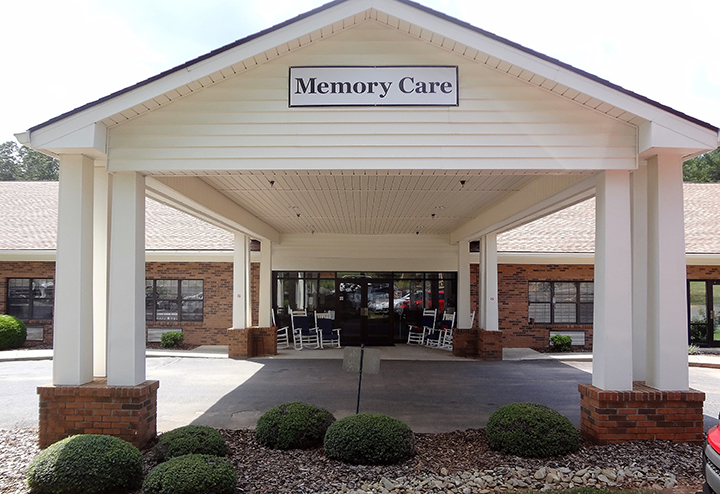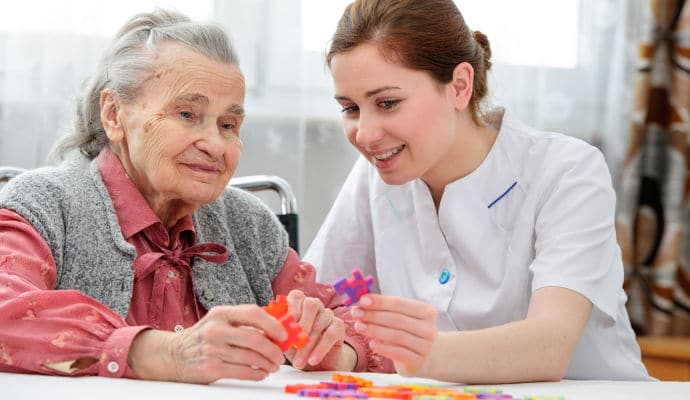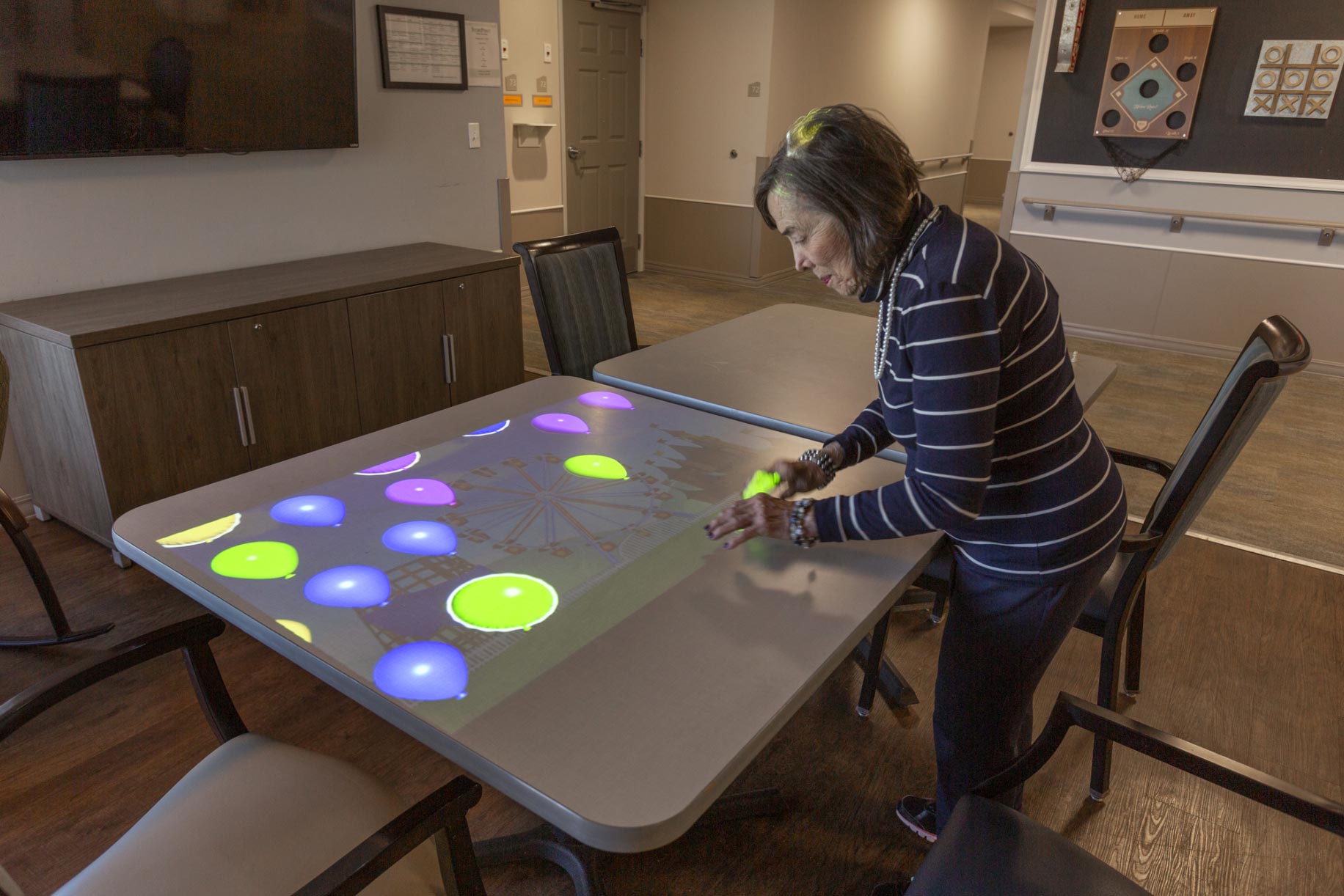Expertly Managed Programs for Top Quality Alzheimers Care Charlotte Solutions
Expertly Managed Programs for Top Quality Alzheimers Care Charlotte Solutions
Blog Article
Developing a Safe and Encouraging Environment for Alzheimer's Care
The development of a helpful and risk-free setting for individuals with Alzheimer's is critical in enhancing their high quality of life. This involves not only physical adaptations within the home, such as reducing threats and including acquainted aspects, however likewise the execution of organized routines and purposeful activities that provide to their cognitive demands. Understanding the emotional and emotional dimensions of care can significantly impact their sense of protection and connection. Checking out these multifaceted techniques can reveal critical understandings right into effective caregiving strategies that may transform the day-to-day experiences of both patients and caretakers.
Understanding Alzheimer's Requirements
Frequently, people with Alzheimer's condition show a range of requirements that call for tailored approaches to care. As the problem proceeds, cognitive decline materializes in different ways, affecting memory, thinking, and even the ability to execute everyday activities. Caregivers should identify these developing requirements to give suitable assistance and guarantee a better of life for those impacted.
One vital element of understanding Alzheimer's needs is acknowledging the relevance of regular and experience. People typically locate convenience in well-known patterns, which can reduce anxiety and complication. Caretakers need to aim to develop structured daily timetables that include purposeful tasks lined up with the individual's rate of interests and abilities.
Furthermore, efficient communication is vital. People with Alzheimer's might have a hard time to express themselves or comprehend intricate language. Caregivers ought to utilize basic, clear language, usage non-verbal hints, and practice energetic paying attention to cultivate understanding and link.
Finally, emotional and social needs can not be overlooked. Offering chances for social interaction and keeping partnerships can significantly improve emotional wellness. Caretakers ought to motivate interaction in area activities or household events, promoting a feeling of belonging and objective. Comprehending these diverse requirements is essential for producing a helpful treatment environment.
Creating a Safe Home
Producing a risk-free home for people with Alzheimer's condition is important to promoting and minimizing threats self-reliance. The design of the home ought to prioritize safety while enabling for personal convenience. First, remove possible threats such as loosened carpets, sharp items, and clutter, which can result in falls or crashes. Guarantee that paths are clear and well-lit, as proper lighting decreases disorientation and enhances mobility.
Integrating adaptive features is additionally important. Install grab bars in bathrooms and near staircases, and take into consideration utilizing non-slip mats in damp areas. In addition, making use of different colors for floorings and wall surfaces can help in distinguishing areas, aiding to reduce complication.
Familiarity is essential for people with Alzheimer's. Customizing the environment with familiar things and photos can reinforce a feeling of belonging and protection - Alzheimers Care Charlotte. It is likewise helpful to have actually an assigned location for daily tasks, such as reading or crafting, which can give framework to their day
Last but not least, implementing a safe exterior area permits risk-free exploration while getting in touch with nature. By thoughtfully designing the home environment, caregivers can significantly boost the high quality of more information life for individuals coping with Alzheimer's disease.
Enhancing Interaction Skills

Non-verbal interaction, including face expressions, gestures, and touch, plays a vital function in communicating compassion and understanding. Preserving eye contact and a tranquil disposition can improve the comfort degree of the person, promoting a sense of security.
In addition, it is essential to exercise active listening. This includes being fully existing, revealing perseverance, and permitting the person to share themselves without disruption. Repetition may be essential; caretakers ought to be prepared to review subjects or inquiries, as people with Alzheimer's may have problem with memory recall.
Furthermore, utilizing aesthetic help or signs, such as photos or familiar objects, can promote recognition and involvement. Ultimately, boosting communication skills is about constructing count on and developing an environment where individuals feel heard, valued, and comprehended, thus enriching their quality of life.
Urging Social Interaction
Promoting significant social communications can significantly improve the wellness of people with Alzheimer's condition. Engaging with others not only helps battle sensations of isolation however also boosts cognitive function and emotional health and wellness. Structured social tasks, such as group video games, arts and crafts, or songs therapy, develop possibilities for residents to link with peers and caretakers, which can result in enhanced mood and lowered anxiousness.
Developing an inviting atmosphere that urges socializing is essential. This can be attained by preparing communal areas that facilitate interaction, such as comfortable seating locations or activity rooms. Additionally, including acquainted and culturally relevant activities can trigger memories and urge engagement, permitting individuals with Alzheimer's to my explanation really feel more linked to their previous experiences.
Moreover, caretakers need to be trained to identify and promote social involvement amongst homeowners. By prioritizing social communication, we can dramatically improve the lives of those living with Alzheimer's, cultivating a feeling of neighborhood and belonging.
Supporting Caregiver Well-being

To sustain caretakers, organizations must use routine training and academic resources to improve their understanding of Alzheimer's illness and caregiving techniques. Providing access to reprieve treatment services allows caregivers to take necessary breaks, minimizing anxiety and tiredness - Alzheimers Care Charlotte. In addition, promoting an area via support system can promote emotional sharing and the exchange of functional advice among caretakers, producing a network of mutual assistance
Mental health and wellness sources, such as counseling solutions, can additionally be essential in addressing the emotional toll caregiving can take. By prioritizing caretaker well-being, we develop a more lasting caregiving atmosphere that not only benefits the caregivers themselves yet additionally boosts the overall high quality of treatment obtained by individuals with Alzheimer's. Eventually, sustaining caregivers is a crucial component in cultivating a caring and efficient treatment setting.
Conclusion
In conclusion, the development of a supportive and risk-free atmosphere site link for people with Alzheimer's is important to enhancing their quality of life. By prioritizing safety and security with thoughtful design, fostering emotional well-being with familiar elements, and promoting interaction via structured routines, caretakers can significantly influence the general experience of those impacted by this condition. Moreover, sustaining caregiver health is essential, as it eventually contributes to a much more thoughtful and reliable treatment environment.
Repetition may be essential; caretakers ought to be prepared to revisit subjects or inquiries, as people with Alzheimer's might struggle with memory recall.

Report this page